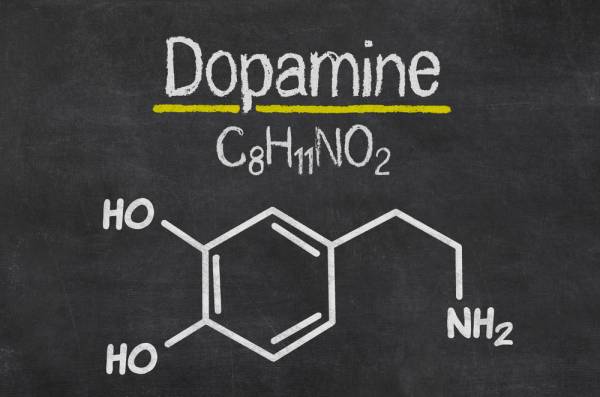Over the last few days here in the Northeast, we got slammed with a major winter storm. This storm forced most of us inside for over a 24-hour period. I realized something about myself during that time.
I was stuck inside and did nothing more than lie on my couch and watch TV. (One of the best parts of renting an apartment in the city is that you don’t have to shovel when over two feet of snow gets dumped on the ground.) Before I knew it, I had eaten a half of a bag of Doritos and some leftover candy from Christmas.
I was not hungry, depressed, or excited. I was just bored.
Identifying the Problem
In my nutritional coaching practice, I cover all areas of emotional eating. Or I thought I did. One area I do not cover, that I need to begin addressing, is bored eating. This can be a serious problem my clients who are attempting to lose weight.
RELATED: How Food Addiction Can Impact Your Mood
The first part in dealing with this problem is understanding what leads us to eat when we are bored. When we are bored, we lack any pleasure or enjoyment, but we are not depressed. It is pretty much a state of no emotions.
“The first step in curing your junk-food binges is to analyze your daily habits. Keep a food-and-mood journal for a week. Write down everything you eat, who you are with, and how you are feeling.”
We have all experienced this type of boredom before. We are sitting around the house when all of a sudden a friend calls asking if we want to go hang out somewhere (most likely a place with food) and we get excited and go do it. I believe this is completely unavoidable. But in order to not devour junk food in these situations, we need to be able to identify that we are bored and find an activity to do instead of eating.
Anhedonia
There is another kind of boredom. This is known as anhedonia. Anhedonia is the inability to experience pleasure from activities that usually give pleasure. I have seen this in clients and myself when it comes to overtraining. Exercise is an enjoyable activity, but when we have pushed it too far it becomes a burden and we no longer feel like doing it.
Anhedonia is a symptom of major depressive disorder, as well as some other psychiatric disorders. Research suggests anhedonia is caused by underactivity of the ventral striatum and over activity of the ventral region of the prefrontal cortex, with dopamine playing a pivotal role. 1
“There is another kind of boredom. This is known as anhedonia. Anhedonia is the inability to experience pleasure from activities that usually give pleasure.”
Dopamine is our major neurotransmitter responsible for memory, focus, and energy. Dopamine is also the neurotransmitter that gives us a feeling of pleasure as a reward. Issues with dopamine being out of balance can lead to ADHD, ADD, depression, and even drug addiction. So, the fact that dopamine plays a role in anhedonia makes sense.
RELATED: Understanding Our Adrenal System: Dopamine
Dr. Kenneth Blum is a neurologist who does research on addiction and our neurotransmitters. In his literature, he discusses what he calls the reward deficiency syndrome. Basically, this states that if our neurotransmitters are out of balance we will seek out behavior or substances that help balance us out. When we find that balancing behavior or substance, we will become addicted.
For example, cocaine increases dopamine. If we are deficient in dopamine and use cocaine, it can raise our dopamine levels and balance us out – and we become addicted. This may explain why some people use cocaine and do not become addicted, while others do. Dopamine is also affected by our sugar intake in ways that are similar to drug addiction.2

Pleasure Is About Survival
We will always seek out behaviors that cause us pleasure. It is how we have survived for millions of years. We eat food, dopamine is released, we feel good, and we do it again. When we are bored, we are lacking the pleasure we need at a subconscious level. This can lead us to binge on junk food.
What we need to do is find ways to increase our pleasure response that do not include eating junk. Two facts to consider:
- Exercise helps to naturally raise dopamine levels.
- Boredom tends to come about at similar times on a day-to-day basis.
Solution? Keep track of when you are bored and attempt to fill that space with exercise. If getting to the gym is not an option, get up and go for a walk. It is even more beneficial if you can go for a walk outside as vitamin D levels turn on the genes for dopamine production.
RELATED: Six Easy Ways to Enhance Your Brain Health
Challenging your brain with new activities every day can also help raise dopamine levels. Have some crossword puzzles available for the times when you get bored. This challenges your brain to stay sharp and may also give you the increased benefit of decreased risk of neurodegeneration later on in life.
“We will always seek out behaviors that cause us pleasure. It is how we have survived for millions of years. We eat food, dopamine is released, we feel good, and we do it again. When we are bored, we are lacking the pleasure we need at a subconscious level. This can lead us to binge on junk food.”
This may also be a good time to add in some meditation. Most of my clients are severely lacking in their stress-management skills. Meditation can help decrease our heart disease risk, poor mood, and food cravings. It also raises dopamine levels. If you’d like to try meditation, you can get started with yoga instructor Bethany Eanes’s 8-Week Meditation Challenge.

Take the First Step
The first step in curing your junk-food binges is to analyze your daily habits. Keep a food-and-mood journal for a week. Write down everything you eat, who you are with, and how you are feeling. This can help you pinpoint the cause of your binges.
From there, institute a plan of action. This can include some of the suggestions listed in this article or strategies you come up with yourself. The options here are limitless.
References:
1. Gorwood, Philip. Neurobiological mechanisms of anhedonia. Dialogues of Clinical Neuroscience (2008). Retrieved on January 28, 2015.
2. Avena, Nicole, et.al., Evidence for sugar addiction: Behavioral and neurochemical effects of intermittent, excessive sugar intake. Neuroscience Behavioral Rev. (2009). Retrieved on January 28, 2015.
Photos courtesy of Shutterstock.






